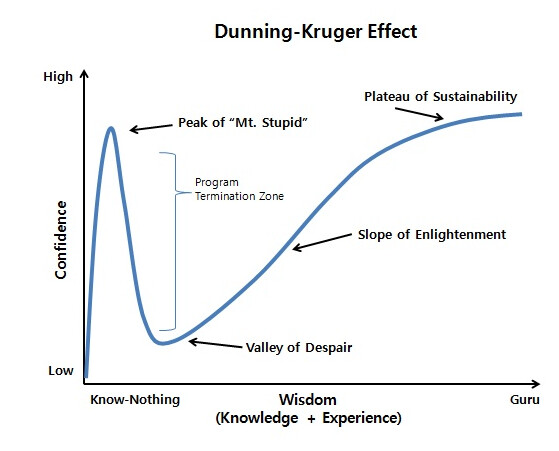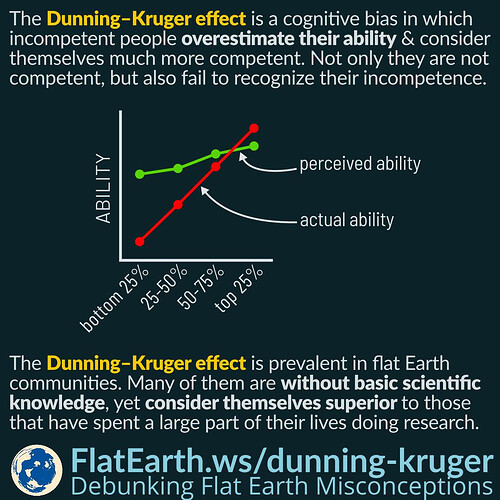There are no such thing as “bad breeds”, just bad owners. And yes, I get irate at crappy owners and shock collars.
Not surprising. I’ve always thought there is a correlation between intelligence, education and atheism. Perhaps atheists tend to be too moral and too intelligent to become criminals. Or perhaps often/usually too intelligent to get caught.
The figures may also be skewed in the US because a plethora of poor black males are in prison for non violent drug related crimes.
My understanding is that here in Oz, the average career criminal isn’t very bright. EG risks years in prison for say robbing a liquor store or burglary. Even if very successful, the gains are usually measured in the odd thousand or two at best. Such people may also have trouble fully understanding the consequences of their actions, like adolescents.
From memory again I remember Pew research showing a correlation between education, especially higher education, and atheism in the states.
For many years atheism has been higher among the scientific community, given the need for critical thinking and objectivity perhaps no surprise, but in the elite US National Academy of sciences atheism almost mirrors theism in the general population.
Some theists seem to have noticed.
“A survey of all 517 NAS members in biological and physical sciences resulted in just over half responding. 72.2% were overtly atheistic, 20.8% agnostic, and only 7.0% believed in a personal God. Belief in God and immortality was lowest among biologists. It is likely that those who didn’t respond were unbelievers as well, so the study probably underestimates the level of anti-God belief in the NAS.”
Ignoring the theistic rhetoric, those figures seem about right from memory.
Though unsurprisingly the theists in that article seem to be rather missing the point. Like the theists who come here and make the risible assertion that objective scientific facts don’t or even can’t exist.
I also spotted this on that web site…
“Ask most atheists why they don’t believe in the God of the Bible, and their answer will ultimately come back to the character of God. Sure, they might mention the lack of “evidence,” hypocrisy in the church, and so on—but when it comes right down to it, they have a problem with God.”
How can theists keep getting such a basic fact wrong?
Everything in their world of ideas center around the existence of a god, and this god being the prime mover, so they are unable to fathom not believing in a supernatural being?
Most if not all who come and post here, do seem have a penchant for delusional and wishful thinking.
This denial of basic facts might also explain why so many theists dishonestly misrepresent the definition of atheism, as a cursory look at that dictionary definition would disavow this idiotic notion that atheism is driven or derived from a hatred of any deity.
I mean a moments objective reflection would reveal the flaw in that rationale, since atheism is the lack or absence of belief in ANY deity or deities. So hating just the biblical or koranic deity wouldn’t be enough to produce atheism, even if it made any sense whatsoever to hate something you don’t believe is real. Which it quite demonstrably does not.
Lol ![]()
It’s this one pre-supposition we just “have a problem with”…
The denial of well established facts and scientific knowledge/facts is something that we can observe elsewhere in society as well. We see it with conspiracy theorists, with proponents of alternative medicine (like homeopathy, acupuncture, healing, etc), denialists of diverse kind (like holocaust deniers), flat earthers and other denialists. It’s nothing new, the willingness of closedmindedly calling individually held beliefs truths (“it’s my truth”) – or as the trumpists call it, “alternative facts” – is at the core of this phenomenon. They seem remarkably often to be victims of the Dunning-Kruger effect, i.e. to be located at the peak of “mount stupid” on the actual vs. perceived ability curve.
There can be no such thing as an “Atheist” who hates God. If there is a god to hate, one must necessarily be a “theist” to hate it.
On the other hand, I suppose an Atheist could hate “god claims” or possibly 'religions." If the atheist were a real bigot, he might hate all religious people.
Hating God is just not something an atheist is capable of doing, well… unless of course … some theist can manifest that God and thus provide a target to hate.
I think I can sort of understand where this “hates God” thing comes from. For the religious, the existence of their god/gods is as real as their own, and it is unthinkable that he/she/it does not exist. So of course the conclusion is that atheists “hate God” – given the premise that God really exists (and exists independenly of your faith or non-faith), it is a logical conclusion.
But the coin has another side:
If your premises are wrong, it doesn’t matter how stringent your logical derivation is, as the conclusion can never be stronger than your premises. And that’s where they fail; they regard the existence of God as near axiomatic while in reality it is an empirical question if you want to draw any solid conclusions from it. You can play all you want with hypothetical and metaphysical properties and existences, but undeniable empirical evidence is the proof of the pudding.
There is also the possibility that it is a conscious strategy, an attempt to discredit the bothersome “opponents” – atheists – by associating negative attributes with them.
I agree, it’s always struck me as an oxymoron. Though I do wonder when theists say this if the hate all the other deities? It’s a bizarre rationale tbh.
Often in debates with theists some of their claims are countered with examples from the bible or koran, but of course this is only used “for the sake of argument” to demonstrate the contradiction in their reasoning.
My thinking precisely, if any extant deity could be demonstrated with sufficient objective evidence, I’d cease to be an atheist, but that wouldn’t make me worship it, or become an adherent of any religion. Those are two entirely separate and distinct lines of reasoning.
I know (s)Hitler was real, but that doesn’t make me a fan.
I can’t see that sorry. Any rationale that requires an absolute line of reasoning, let alone that contradicts a simple word definition, doesn’t seem logical to me, quite the opposite? Or did you mean that theists might (wrongly) consider it a rational conclusion? That I can see of course, as I’ve seen enough theists make demonstrably irrational assertions, while simultaneously asserting them to be rational.
Ah, I should have read on.
In many cases I’ve noticed theists resort to this final “trump card”, when all else has failed to sway atheists. I’d assumed it was simple sophistry resulting from frustration. It’s only recently I questioned whether they might really believe this fairly common theistic misnomer.
Yes and no. The point is this: You start with a set of premises P, to which you apply a set of logical deductions D(P). The logical and computational machinery in D can be flawless but still yield the wrong answer, since it depends on the correctness of the input P. If P is rubbish, then D(P) is rubbish, even if D itself is flawless. No matter how formally correct your deductions or computations are, if the input is incorrect, your results are also incorrect. This is semi-formally known as garbage in, garbage out. Or more vulgarly as shit in, shit out.
I agree, which is why I consider this argument, that atheists are really theists, who are just angry with a deity, to be irrational.
It contradicts the commonly understood definition of the word atheist, to insist they’re really theists. That strikes me as a No True Scotsman fallacy.
X Atheism
Y Theism
Y can’t believe X really disbelieve, so an argument from incredulity fallacy.
Therefore Y assumes X are really Y, and offers a premise that would rule out X. So a No True Scotsman fallacy.
I think they must. Isn’t this evidenced by the second commandment or first commandment depending on which of the three groups of ten commandments you want to pay attention to.
Catholics Assert:
I, the Lord, am your God. You shall not have other gods besides me.
The Jews Assert, in their version of the 10 commandments…
You shall have no other gods but me.
The Protestants argue…
You shall have no other gods but me.
Not even graven imiges.
So there is clear prescident to hate gods.
Many theist have had the existence of their god pounded into their heads their entire lives. They can’t even conceive of someone who really does not believe; so they assume we are lying, and that we are just in rebellion against their god (that we secretly believe, but say we don’t as some kind of weird attack on their god). In short, when they claim you hate god, they are calling you a liar.
Couldn’t it also be a false equivalence fallacy, where non-belief based on missing data is surreptitiously replaced with/reinterpreted as being secretly angry with a god that has been axiomatically assumed to exist?
@Cognostic Misotheism is illogical. You first have to prove God’s existence, in order to hate God.
Very probably, there seems to be more than one fallacy at play in the rationale I linked.
Paranthetically I have also seen theists often accuse atheists of being atheists, just so that they can do whatever they want. A similar core rationale here, that no one can genuinely disbelief in a deity without an ulterior motive, again another variant of the No True Scotsman is.
This one is definitely falsifiable though. As there would be evidence of increased immorality among atheists. Where theists and atheists are compared objectively on a level playing field, I have only seen research showing atheists to be at least as moral as theists. For example studies of the percentages both demographics make up in prison populations in the US for violent crimes like murder and rape, show atheists as under represented in comparison to the general population. Though of course there may well be other factors to consider as root causes behind the data. However it habitually does not support the theistic claim to moral ascendancy.
However the main focus here on the initial claim, can simply cite that it is unsupported by any objective evidence. I would add that I have never encountered an atheist who was in fact a theist, pretending they didn’t believe, just to mask anger at a deity.
I find the claim not just irrational, but highly dubious. Though it seems a popular red herring, that crops up quite regularly.
Is is illogical, but I suspect the motive is precisely to avoid addressing atheistic requests for evidence, by using a type of No True Scotsman fallacy, that substitutes an ulterior motive for atheism.
Indeed.
You might be aware that loopy Mel Gibson is a chronic, deeply conservative Catholic.***
In one of his cop movies, the Danny Glover character says “God hates me”
Mel Gibson’s character says " Hate him back. Works for me". I’ve never heard an atheist say such a thing, at least as far a I’m aware.
***Mel’s father, Hutton Gibson was a nutcase of the first order and ultra conservative Catholic. Explains a lot about Mel. Well, that and Mel’s alcoholism. At his worst, Mel’s a typical alkie having a binge.

